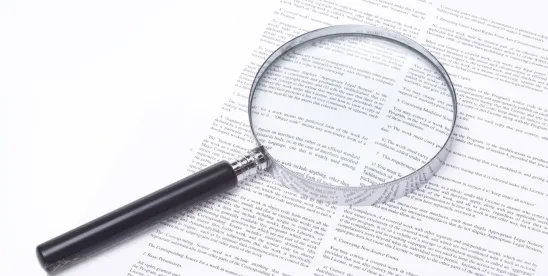The National Defense Authorization Act for Fiscal Year 2021 (NDAA) that was enacted on January 1, 2021 includes an important provision barring Department of Defense (DoD) contractors from silencing whistleblowers. Section 883 of the NDAA amends the Defense Contractor Whistleblower Protection Act (“DCWPA”), 10 U.S.C. § 2409, by prohibiting DoD from awarding a contract to a contractor that requires its employees to sign a confidentiality agreement “that would prohibit or otherwise restrict such employees from lawfully reporting waste, fraud, or abuse related to the performance of a Department of Defense contract to a designated investigative or law enforcement representative of the Department of Defense authorized to receive such information.” In addition, Section 883 requires DoD contractors to inform their employees of this limitation on confidentiality agreements, i.e., inform them of their right to lawfully report waste, fraud, abuse, and other wrongdoing.
Section 883 of the NDAA is similar to restrictions barring federal agencies from silencing whistleblowers. As DoD pays contractors more than half of its $740 billion annual budget, it is critical to ensure that contractor employees can report waste, fraud, or abuse without fear of reprisal.
A DoD contractor should not be permitted to silence a whistleblower by threatening to sue for breach of a non-disclosure or confidentiality agreement (and should not be permitted to use taxpayer funds to conceal the contractor’s misconduct). Section 883 of the NDAA will be a significant deterrent to SLAPP suits against whistleblowers.
Note though that Section 883 of the NDAA bars DoD contractors from restricting lawful whistleblowing. Employees of DoD contractors should be careful to report fraud or other unlawful conduct in a lawful manner. Leaking classified information to the media would not be protected and could subject the whistleblower to criminal prosecution. If a contractor performing work for DoD seeks to disclose classified information, they should seek advice to learn about law options to blow the whistle, e.g., reporting to the DoD OIG using secured channels.
A DoD contractor employee who suffers retaliation for reporting waste, fraud, or abuse to their employer or the federal government can bring a retaliation claim under the DCWPA. The claim must be filed initially with the DoD OIG, and following an investigation, the whistleblower can remove the claim to federal court.
Remedies for prevailing whistleblowers in NDAA whistleblower retaliation claims include reinstatement, back pay, uncapped compensatory damages (emotional distress damages), and attorneys’ fees and costs. The scope of protected conduct under the DCWPA is broad and includes disclosures of information that the employee reasonably believes is evidence of the following:
-
gross mismanagement of a DoD contract or grant;
-
a gross waste of DoD funds;
-
an abuse of authority relating to a DoD contract or grant;
-
a violation of law, rule, or regulation related to a DoD contract; or
-
a substantial and specific danger to public health or safety.



 />i
/>i

